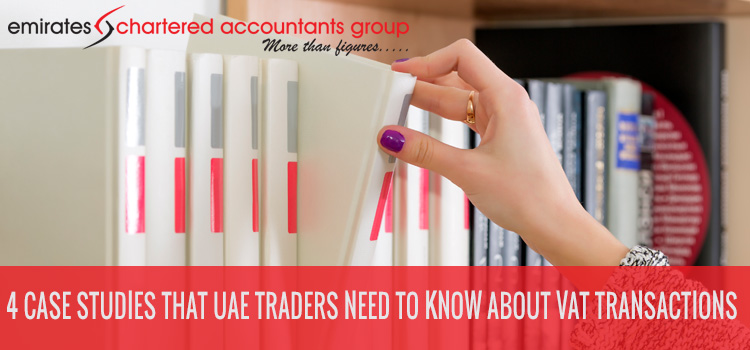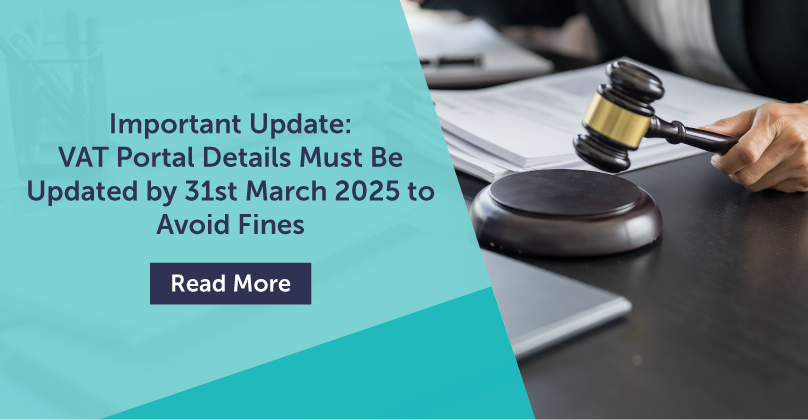
Case Studies that UAE Traders Need to Know About VAT Transactions
UAE is going to implement VAT by 1st Jan 2018. The business community is eager to know its impact on their business. To understand the impact of VAT in UAE on various transactions of a trading company. The following illustration will help the businesses and finance people to understand how UAE VAT law will impact the transactions of trading companies.
Case Study:
Company ABC LLC is into production and distribution of a special kind of machinery used in construction. The main factory is in London. It has branches in more than 100 countries. All the operations in the Middle East are controlled from their office in Dubai. Please advise how VAT in UAE will be applicable in the case of the following transactions:
CASE 1: Goods are imported to Dubai from the factory in London.
VAT on Import to Dubai warehouse: When we import to Dubai(UAE) there will be customs duty as applicable now. VAT in UAE will be calculated on the gross price (purchase value + customs duty). However, the importer need not pay the VAT at the time of import.
Here reverse charge mechanism will be applied for VAT purpose. The importer will record the 5% VAT on the gross value of import as output tax and the same amount will be recorded as input tax in the VAT return for the same period. This is only a book entry. There is no actual payment during import of goods. This is called reverse charge under VAT.
CASE 2:Goods are imported directly to customers in Singapore.
But the order is booked from the representative of the customer in Dubai. Customer payment is received locally (agent of the customer paid through local cheque). Goods are imported to Singapore. In this case, the place of supply of goods is outside the UAE. Hence, no UAE VAT will be charged on such transactions.
CASE 3:Goods are imported directly to customers in Saudi.
But the purchase and sales are booked in the Dubai office. Customer located in Saudi makes the payment through online transfer. Goods are imported to Saudi. In this case, the place of supply is Saudi. Hence the law applicable in the Saudi land will be applicable.
That means the taxable country will be Saudi. Reverse Charge under VAT will be applicable (if Saudi VAT law provides so).
CASE 4: Goods imported to Dubai warehouses are:
- Sold in the local market
When the goods are sold in the local market, 5% VAT will be collected and paid to the authority. No input VAT can be claimed once again. It was claimed under the reverse charge mechanism.
- Sold to customers in Muscat (GCC country)
Sold to customer in Muscat. Until VAT is implemented in Oman (Muscat) it will be treated as a country outside GCC for VAT purpose. Hence, the treatment will be similar to sales to the case given in point d(iii) below. If the customer is registered under the respective VAT Law of the country (Oman), no tax will be collected from the customer. The place of business will be the place where transportation terminates; ie Muscat.
Hence Tax liability will be as per the provisions of the Law in the Land of Oman. In case, the customer in the Muscat is a non-registered customer, the company ABC LLC can supply the materials by paying 5% tax to the UAE Tax Authority (till such sales reach to AED 375,000/ for a particular year).
- Sold to customers in Malaysia.
Sold to customer in Malaysia. It is an export and hence tax rate will be zero%.
Looking for TAX Services in the UAE?
We provide:
- Tax Agent’s Service
- VAT Return Filing
- VAT Service
- VAT Registration
- Excise Tax Service
- VAT Deregistration
For Tax Services in Dubai:
Mr. Pradeep Sai
pradeep.sai@claemirates.com
+971 556530001
For Tax Services in Abu Dhabi:
CA Harikrishnan
T: +971 26435 193
M: +971 569940174
E: Harikrishnan.Nampoothiry@claemirates.com




